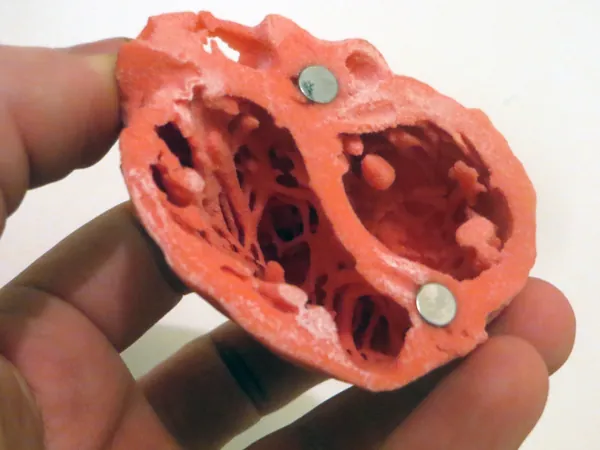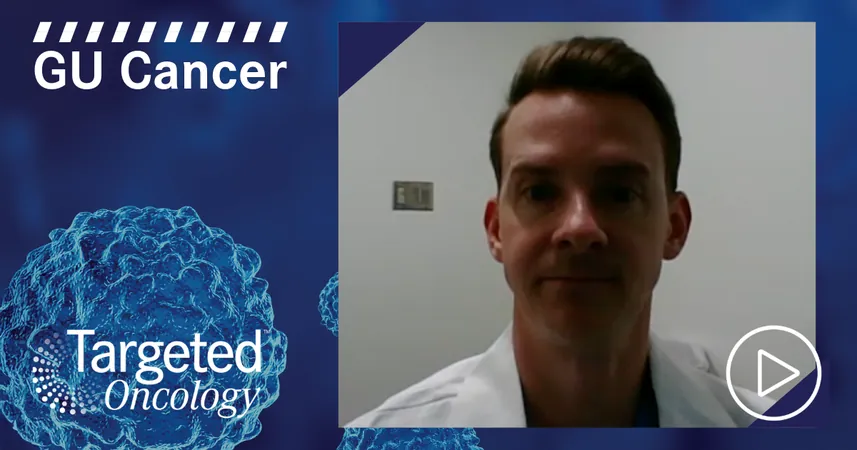
Revolutionary Wireless LVAD System Set to Transform Heart Device Technology!
2024-11-12
Author: Wei Ling
Revolutionary Wireless LVAD System Set to Transform Heart Device Technology!
In an exciting breakthrough in cardiac care, researchers at SUNY Poly, led by Assistant Professor Dr. Amit Sangwan, have unveiled their cutting-edge study titled "Feasibility Testing of the Bionet Sonar Ultrasound Transcutaneous Energy Transmission (UTET) System for Wireless Power and Communication of a LVAD." Published in the esteemed journal *Cardiovascular Engineering and Technology*, this research represents a significant leap forward in the technology surrounding left ventricular assist devices (LVADs).
Overview of the UTET System
The primary focus of the study is a groundbreaking ultrasonic transcutaneous energy transmission (UTET) system that promises to revolutionize how LVADs are powered. Currently, LVADs depend on physical drivelines that run through the patient’s skin, a connection that not only poses a higher risk of infections but also complicates the daily life of heart failure patients. This innovative wireless solution could potentially eliminate the need for these cumbersome drivelines, leading to a new era of patient safety and comfort.
How It Works
But how does this work? The UTET system utilizes ultrasonic waves to wirelessly transmit power to the LVAD, successfully powering the device across various settings in controlled laboratory and animal models. During tests, critical safety measures were in place, with researchers actively monitoring key parameters like tissue temperature to prevent overheating, ensuring patient safety at every turn.
Enhancing Patient Safety and Communication
In addition to wireless power, the UTET system lays the groundwork for real-time data communication, vital for maintaining pump control and ensuring the reliability of the device. This dual capability not only enhances the technology but also fortifies patient safety, a paramount concern in cardiac surgical interventions.
Collaborative Effort
The collaborative effort between Dr. Sangwan, Bionet Sonar, and the University of Louisville is a beacon of hope for those suffering from severe heart conditions, ushering in new possibilities for the future of heart assist technology. Imagine a world where heart failure patients can live unrestricted by the physical limitations of their devices—this research is on the cusp of making that a reality.
Future Implications
As medical advancements continue to evolve, the UTET system stands as a promising innovation that could redefine the standard of care for LVAD patients, making their journeys toward recovery not only safer but also significantly more manageable. Stay tuned, as the future of heart technology is rapidly approaching!

 Brasil (PT)
Brasil (PT)
 Canada (EN)
Canada (EN)
 Chile (ES)
Chile (ES)
 Česko (CS)
Česko (CS)
 대한민국 (KO)
대한민국 (KO)
 España (ES)
España (ES)
 France (FR)
France (FR)
 Hong Kong (EN)
Hong Kong (EN)
 Italia (IT)
Italia (IT)
 日本 (JA)
日本 (JA)
 Magyarország (HU)
Magyarország (HU)
 Norge (NO)
Norge (NO)
 Polska (PL)
Polska (PL)
 Schweiz (DE)
Schweiz (DE)
 Singapore (EN)
Singapore (EN)
 Sverige (SV)
Sverige (SV)
 Suomi (FI)
Suomi (FI)
 Türkiye (TR)
Türkiye (TR)
 الإمارات العربية المتحدة (AR)
الإمارات العربية المتحدة (AR)